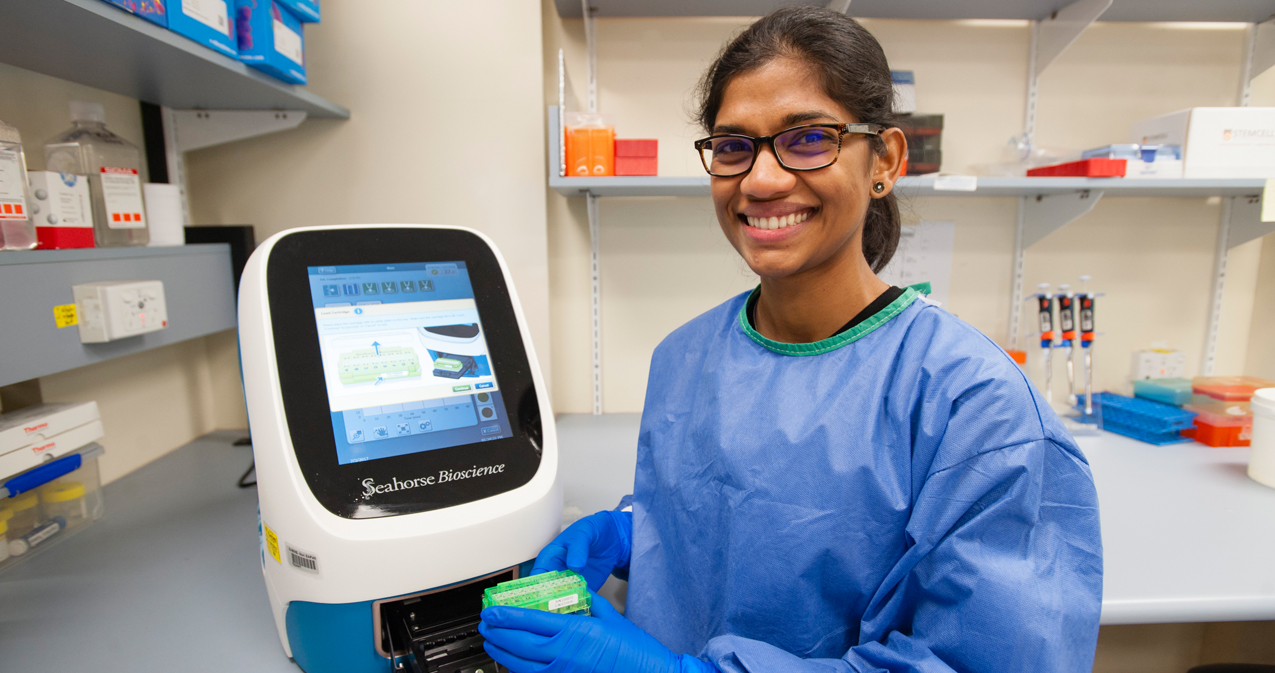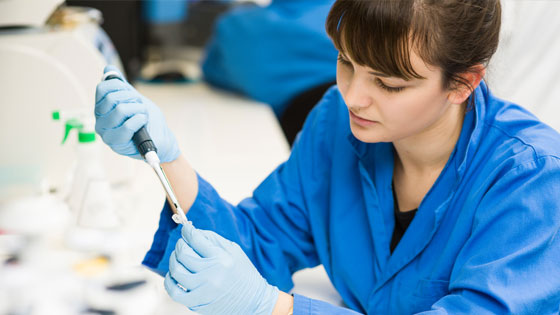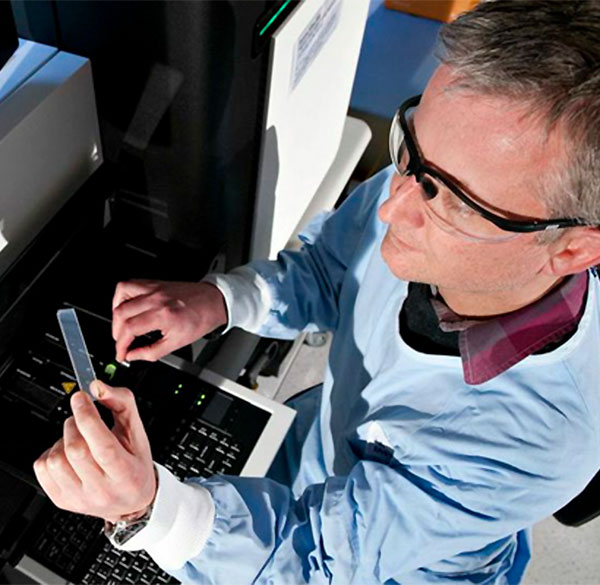
Professor Richard D’Andrea and his team in the Acute Leukaemia Lab are widening the molecular and genetic understanding of acute myeloid leukaemia (AML) to improve outcomes for patients with this often difficult to treat cancer.
AML is a rare cancer of the blood and bone marrow which often has dismal treatment outcomes, with only 30% of patients successfully cured by current treatment, and high rates of relapse and median survival rates of as little as just 10 months for some subtypes.
Once thought to be a single form of leukaemia, AML is now considered to be a group of diverse cancers that share some genetic and molecular characteristics, but respond very differently to treatments. This has made finding alternatives to intensive chemotherapy particularly difficult.
“Despite the complexity we have some promising leads to improve treatment strategies for AML,” says Professor Richard D’Andrea.
One such approach underway in the Acute Leukaemia Lab is exploring the link between DNA methylation and the tumour suppressor gene GADD45A, both of which are altered in AML cells.
Dr Saumya Samaraweera is exploring why the DNA methylation process is upregulated (increased) in AML patient cells and how this interacts with GADD45A, which plays a key role in normal blood stem cell growth and survival.
“Methylation is a normal chemical process of DNA modification within cells that changes the way genes are expressed,” says Dr Samaraweera, Postdoctoral Research Scientist.
“But altered methylation in AML affects GADD45A in different ways, depending on the genetic profile of the disease, and our analysis shows that this is linked to the risk of relapse of the AML after chemotherapy treatment.
"We are working to understand why these changes take place and what they tell us about how AML is initiated from normal blood stem cells, and we are also investigating whether we can use the profiles of altered DNA methylation to help identify which patients are less likely to respond well to traditional chemotherapy treatment.”
The team is also currently exploring promising leads for therapy. For this, novel drugs are being tested on patient samples to find more effective treatment for AML patients with disease that is difficult to treat.
“Our studies of AML cellular metabolism, the process by which cells create the energy they need to replicate and survive, have shown that similar to methylation patient, AML cells show many different metabolic profiles,” says Prof D’Andrea.
“If we can find the metabolic pathways that different forms of AML rely on to grow, then we can essentially target these and starve the cancer of energy, potentially creating a new effective treatment for the disease.”
To donate to help support important cancer research at UniSA, as well as a long list of other areas of medical research, please visit: https://donate.unisa.edu.au/donate-to-the-centre-for-cancer-biology.

100% of your gift will go directly to support cancer research at UniSA - there are no administration fees, no overheads and no hidden costs.
The University of South Australia (UniSA) is committed to tackling one of our most challenging diseases – cancer – by establishing the largest cohort of cancer researchers ever assembled in South Australia. Every day our experts are getting one-step closer to saving more lives as well as improving the quality of life for cancer survivors. But they need your help.
